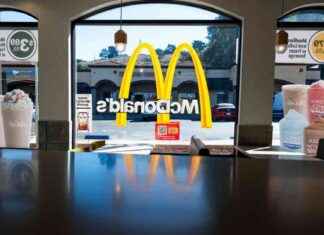Some of Silicon Valley’s biggest names have joined the court fight against President Donald Trump’s immigration restrictions, as heavyweights like Apple, Google and Facebook warned that the limits could hurt the country’s economy.
In a filing to a federal appeals court dated Sunday, nearly 100 technology companies argued that Trump’s temporary ban on all visitors from seven predominantly Muslim countries would hurt their businesses and violate both immigration law and the U.S. Constitution. A lower court Friday temporarily halted critical parts of the ban, but the Trump administration is fighting to have them reinstated. The issue is set to be considered this week by the 9th U.S. Circuit Court of Appeals, based in San Francisco.
“The tremendous impact of immigrants on America — and on American business — is not happenstance,” the companies said in a friend-of-the-court filing. “People who choose to leave everything that is familiar and journey to an unknown land to make a new life necessarily are endowed with drive, creativity, determination — and just plain guts.”
“The energy they bring to America,” it said, “is a key reason why the American economy has been the greatest engine of prosperity and innovation in history.”
In addition to Apple, Facebook and Google, major technology names that signed the brief included Microsoft, Uber, Twitter, Airbnb, Intel and Snap, the parent of Snapchat. A few names from outside the technology field, like Levi Strauss, the jeans maker, and Chobani, a yogurt company, also signed the brief.
The filing is likely to fray already tense relations between Trump and the technology industry. Its most prominent figures largely backed Trump’s rival, Hillary Clinton, in last year’s election campaign.
The tech industry’s top executives have faced a balancing act. Challenging Trump’s policies could invite political blowback, particularly from a president who is unafraid to call out companies publicly. At the same time, they have an outspoken employee base that views Trump’s economic nationalism as anathema to the globalization that has given rise to many of the companies. Many tech workers are immigrants or from second-generation families, and Silicon Valley itself has a history of immigrants founding and leading some of its most impressive companies.
A number of tech executives initially tried to work with the administration, but a surge in opposition to Trump’s immigration order led tech workers to call for their executives to push back. Last week Uber’s founder and CEO Travis Kalanick stepped down from Trump’s economic advisory council after pressure from employees, customers and drivers.
The filing is also likely to set off speculation about why some companies did not sign the filing. Prominent technology names that did not sign include Oracle, the big database company; Hewlett-Packard, the computer maker and tech services company; and Tesla, the electric-car company. Company officials could not be reached for comment.
Elon Musk of Tesla is on the council that Kalanick quit. He wrote on Twitter on Sunday, “Activists should be pushing for more moderates to advise President, not fewer. How could having only extremists advise him possibly be good?”
Our editors found this article on this site using Google and regenerated it for our readers.







